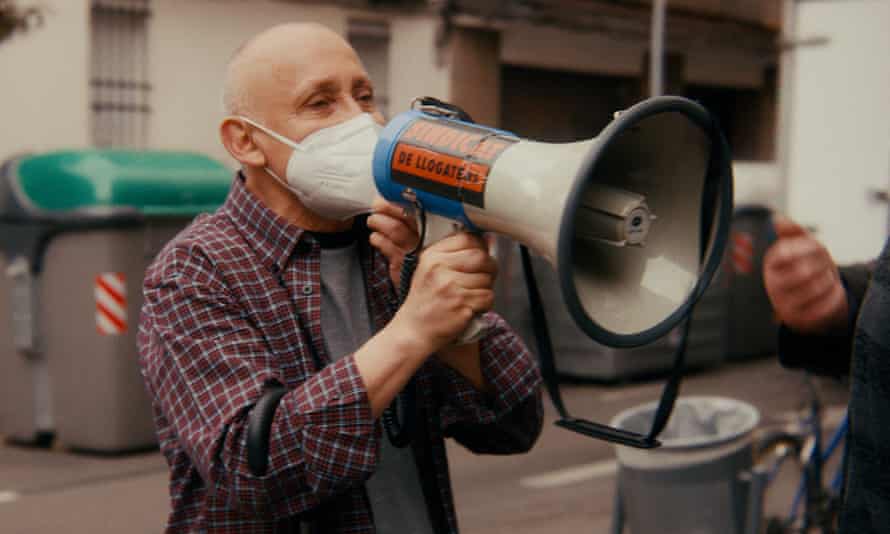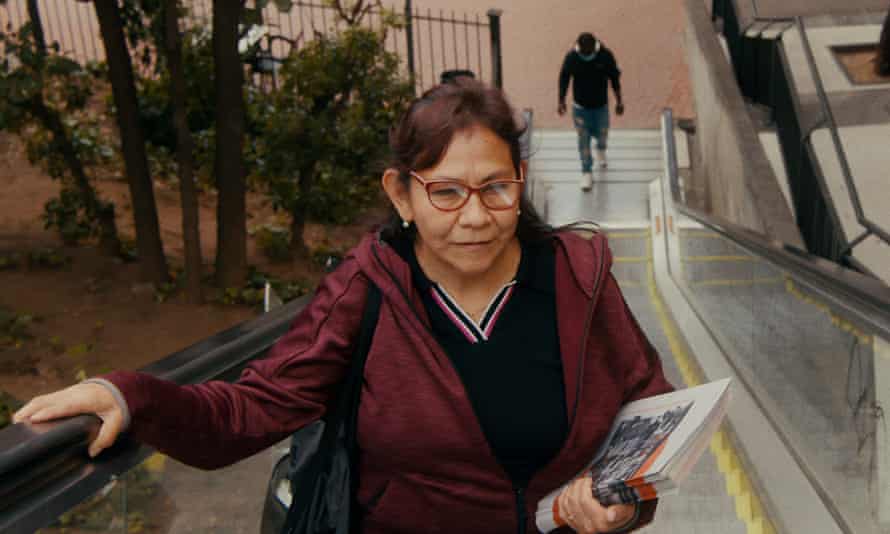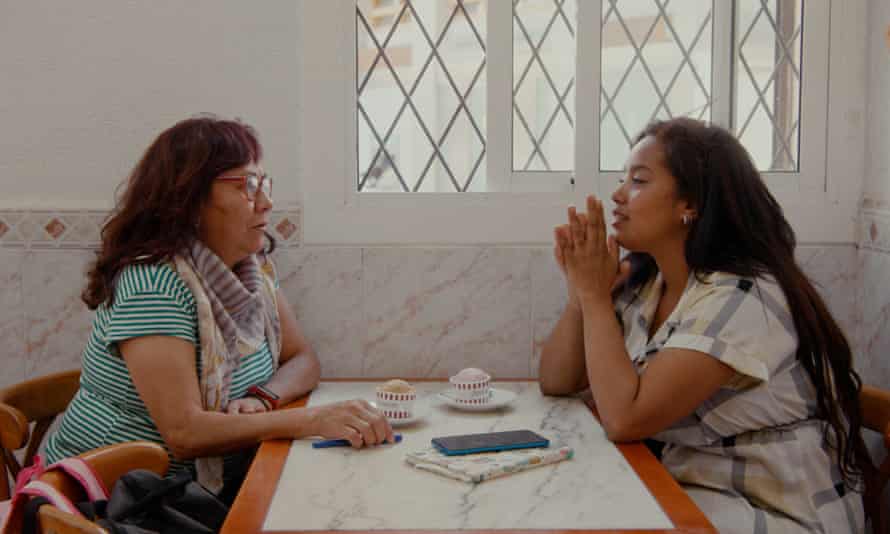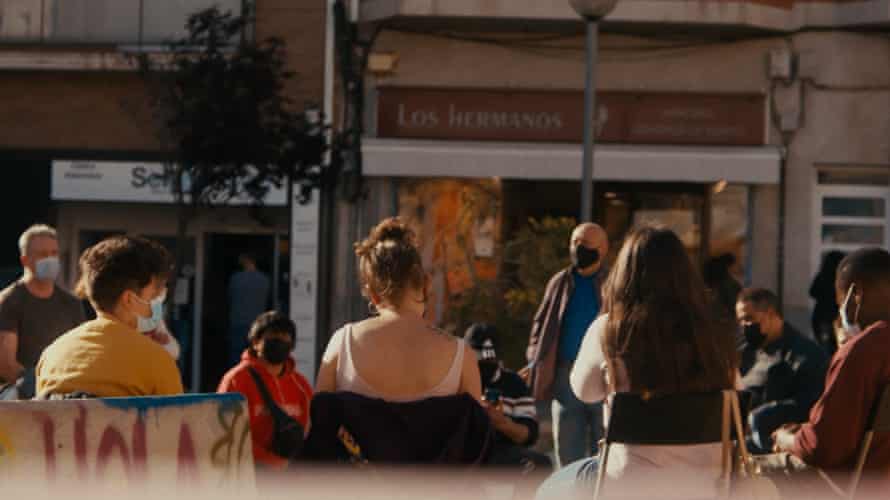better homes and gardens august issue
E arlier this year, I found myself in the city of L'Hospitalet de Llobregat to the south-west of Barcelona. It lacks the fame and tourist hordes of the Catalan capital, but the two places are connected by the same dire housing crisis.
Guided by Júlia Nueno, organiser of a grassroots tenants' movement, I found a community of neighbours in L'Hospitalet who hold their meetings in a public park yet are managing to take responsibility for something the authorities are failing at: putting a roof over people's heads. Their challenge is daunting in a corner of Spain that still bears the scars of the 2008 economic crisis and remains in the grip of the Covid pandemic.
18:17
L'Hospitalet de Llobregat is the second-largest city in Catalonia and one of the most densely populated in Europe. Its proximity to Barcelona has attracted generations of migrants over the past six decades. Spaniards from the south of the country arrived in the 1960s, later giving way to people from Ecuador, the Dominican Republic, Morocco and many other countries. Today, many of the municipality's 260,000 residents work in low-income jobs and live in overcrowded conditions in small, cheaply constructed flats.
Increasingly, they are joined by young people priced out of Barcelona by gentrification, property speculation and extortionate rent rises. Those fleeing unaffordable rents in Barcelona unwittingly perpetuate the problem; when they arrive, rents in L'Hospitalet also rise and locals wind up unable to afford homes they may have rented for a decade.
Since 2019, people threatened by eviction have been able to turn to the local chapter of El Sindicat de Llogateres, a renters' union founded in Barcelona and active across Catalonia.

Renters' unions are nothing new in Europe, but what these people are doing to reset the relationship between tenants and landlords is out of the ordinary. I decided to make a film for the Guardian about Sindicat members in L'Hospitalet that would also tell the stories of some of those who struggle, often invisibly, on the outskirts of the city where I was born.
Victor, in his 50s, from Ecuador, for example, is stuck in a three-year lease for his tiny flat. His rent, once €690 a month, has risen to €805 a month and his landlord is now squeezing him for €900 a month – which equals his wife's salary in two full-time jobs as a cleaner.
Then there is Marlene, a single mother from Bolivia who came to Spain more than two decades ago. Her story, which makes up much of the film, is far from uncommon. People without a regularised immigration status often work cash-in-hand as carers and find themselves marginalised and abandoned to the mercies of the market.
"We undocumented people don't exist," Marlene says in the film. "They want us to take care of their elders, or clean their houses. But when we ask for economic help or for a roof to live under, we are not valued. We just don't exist."

The Sindicat helps to stop evictions by staging rallies and publicising cases. It offers people a practical toolkit of legal help and guidance so they can negotiate with landlords. Perhaps more fundamentally, it lets people know they are not alone, and shows there is strength – and comfort – in numbers.
The Sindicat has helped vulnerable evicted families through direct action – by opening up flats owned by either banks or vulture funds that have lain empty for at least two years.
Since the 2008 financial crash, words such as "eviction" and "squatters" have featured in the Catalan news headlines and in much of the mainstream media narrative Catalonia is referred to as "the region with the highest number of squatters". Quantifying the number of people who don't officially pay rent with a word that has negative connotations, related more to an aesthetic and a way of living than a position of vulnerability, does little to promote public understanding of the scale of the housing crisis.
There's a fear and a misconception among homeowners that their houses may be taken over by squatters if they go away for the weekend. But the reality of who is squatting what couldn't be further from the media portrayal. Making this documentary and showing what drives someone to occupy a flat was the reason why the community in L'Hospitalet was happy to cooperate in the making of the film.
In Spain, social housing represents less than 2% of homes, one of the lowest rates in the OECD and the EU. So who takes responsibility for the lives of those at the frontline of poverty? In Catalonia, which is also the region where most evictions happen in Spain, more than 24 families are evicted every day. In L'Hospitalet de Llobregat specifically, evicted families are only given three days' stipend and then left in the streets. Without an adequate welfare or social services system in place, families and single parents are often left in limbo.

Women such as Marlene – and Dalila, another of the film's protagonists – are forced to carry an emotional burden because of the lack of housing security. They have both found themselves on the streets with nowhere to go, caring for a child who has learned way too young the cost of living. But these resilient women can only think one week at a time, and the Sindicat has helped them temporarily with a place to live, even if that means squatting. They know that they didn't fail in their lives, but that they were on the wrong side of a structural problem: the unfair access to affordable housing. They themselves received help and support from the community, and now, as they work long hours juggling different precarious jobs, they want to give back that help by standing with their neighbours.

Sindicat organises through collective counselling, meaning that cases are discussed at a weekly assembly, which often takes place in a public park, where anyone who has gone through a similar experience can give advice. The union is also setting a precedent in collective bargaining, by organising neighbours who have the same landlord, either in the same building or in different locations, to work on a common negotiation strategy. One of the Sindicat's highlights so far has been to help shape a rent control act that was approved in Catalonia's parliament in September 2020.
Stopping an eviction, opening up an empty property, winning a contract or changing policies are victories that strengthen the housing struggle and perhaps hold lessons for communities in other European cities battling against a shortage of affordable homes. Organising in the streets as they do, Sindicat's members in L'Hospitalet de Llobregat are also gathering extensive and valuable social knowledge. This knowledge makes the community stronger and opens the door to respectful and humane housing solutions that don't involve marginalising families in distress. If health and education are considered basic rights, why not housing?
-
Irene Baqué is a documentary film director who explores issues of identity, gender and social justice
Watch more Guardian Documentaries here.
Sign up for the Guardian Documentaries newsletter here to be the first to hear about new releases and exclusive events.
Sign up for the This Is Europe newsletter here to get a weekly selection of the most pressing stories and debates for Europeans – from identity to economics to the environment.
better homes and gardens august issue
Source: https://www.theguardian.com/world/commentisfree/2021/nov/11/health-education-spain-housing-renters-catalonia
Posted by: grandepoved1950.blogspot.com

0 Response to "better homes and gardens august issue"
Post a Comment